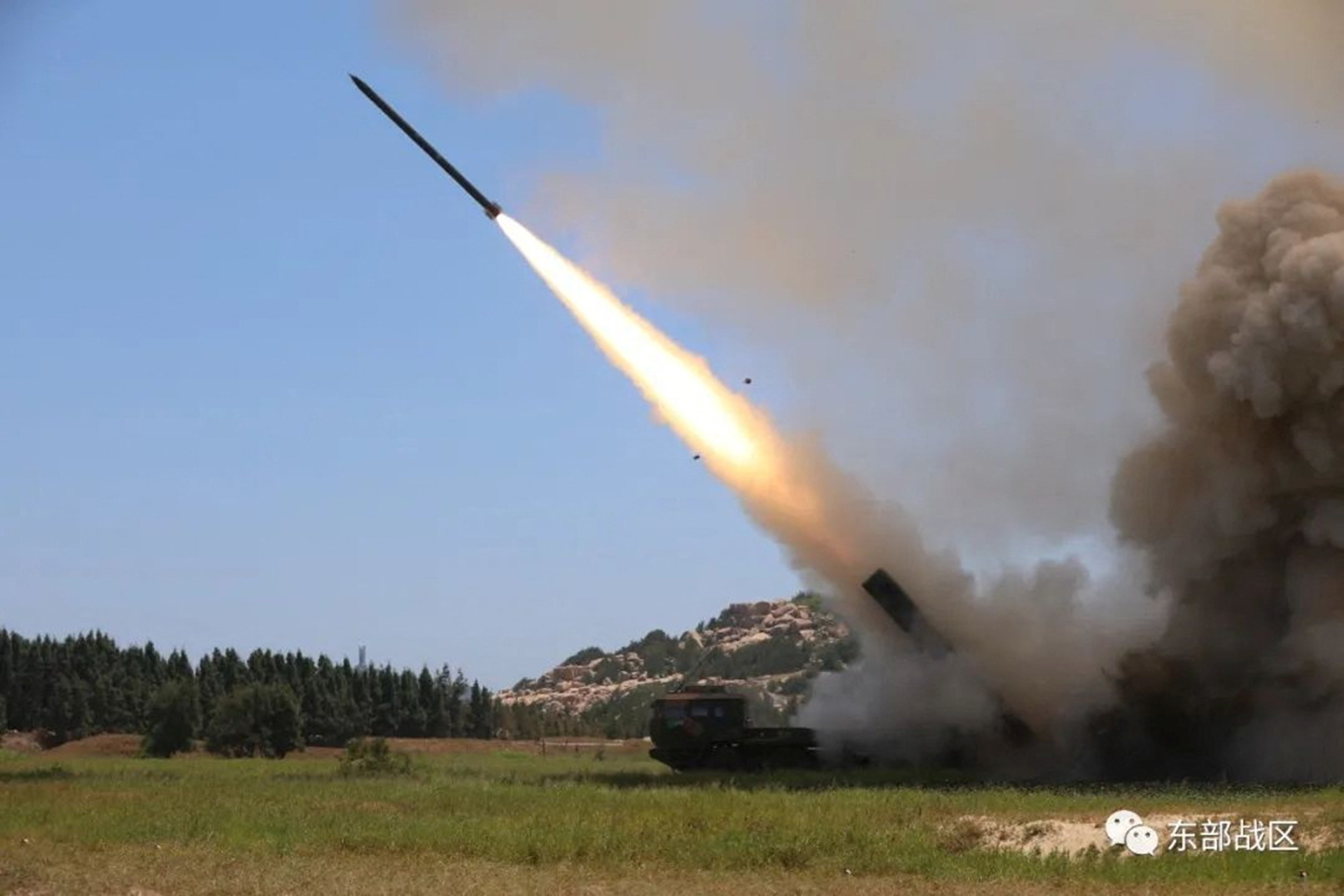BEIJING
- About 200 kilometers north of Taiwan is the remote Kinmen Island of Taipei, although it is less than 5 kilometers from the Chinese mainland.
Since the end of the Chinese Civil War in 1949, the Communists have twice attempted to occupy Kinmen, but both times nationalist forces repelled the attacks.
Some of those on the island - with a population of about 100,000 people - believe that it will be the first stop for any future Chinese attack on Taiwan.
Despite stressing the need for a peaceful solution, Beijing did not rule out the use of force to control the island of Taiwan, and repeated this threat last Wednesday, following the visit of US House Speaker Nancy Pelosi to the self-governing island, which Beijing considers a territory that seeks to reunite it with the mainland.
Offensive drills
There are many reasons for China and Taiwan to avoid a war that could kill tens of thousands, destroy the economies of both countries, and possibly lead to a nuclear conflict with the United States and its allies.
On the other hand, there are other factors that may push these countries to action, including Chinese President Xi Jinping's desire to consolidate his legacy by winning "lost lands", declining support among the Taiwan public for any union with China, and the rise of pro-independence forces in Taipei and the United States on the increasingly.
Looking at the map of the military exercises that Beijing began on August 4, the exercises focused on 6 dangerous areas around Taiwan, 3 of which overlap with the island's territorial waters.
Experts expect China to go down the road to a quick knockout even after a while, as the People's Liberation Army (Chinese army) conquers the main island before the United States can help.
Striving for symbolic victory
On paper, the military balance tilts strongly with Beijing, which spends about 25 times more on its military than Taiwan, according to estimates by the Stockholm International Peace Research Institute.
Beijing also has a clear traditional advantage in everything;
From missiles, fighter planes, to warships, troop levels, as well as its nuclear arsenal.
"With the growth of China's military supremacy, the possibility of Beijing deploying a force against Taiwan has become more realistic," The Economist said.
Citing military analysts, Chinese media say military incursions across the center line (an imaginary line dividing the Taiwan Strait) will occur more regularly, with some opining that Pelosi's visit could "accelerate" unification.
Beijing has previously warned the United States that the strait that separates the island from Fujian Province is not international waters.
Chen Fangyu, an assistant professor at Suzhou University in Taipei, says China is not yet ready to launch an all-out attack on Taiwan.
He added to Al Jazeera Net that seizing the remote Taiwanese islands of Kinmen and Matsu, which are largely demilitarized, could provide a symbolic victory for the Chinese Communist Party;
In a situation where he needs a tangible victory in the Taiwan Strait.
pressure to impose conditions
Mahmoud Alloush, a researcher in international relations, believes that Beijing has a less expensive option than war, which is the "grey zone" war, which is part of the rules of the game that China plays with Taiwan and neighboring countries that have territorial disputes with it.
Alloush expects - in an article published by Al-Jazeera Net - that Beijing will resort to imposing a long-term naval blockade on the island, and perhaps strike Taiwanese military targets, as it did in the previous Taiwan Strait crisis, as well as it can enact new legislation to speed up the unification process.
Analysts believe that China will start doing one thing after another that will never give the United States, Japan or the Quadruple Alliance any reason for war.
For his part, political analyst Shu Qin Du told Al Jazeera Net that China's strategy is still to increase strategic and economic pressure on Taiwan, with the aim of imposing negotiations on unification according to its terms.
When does the spark of war begin?
Chinese military statements have been issued confirming that any deliberate intervention of the Taiwanese army in the face of any Chinese exercises will face a strong response, which may develop into a comprehensive confrontation.
According to a survey conducted by the local newspaper, the Global Times, 70 percent of Chinese strongly support the use of force to unite Taiwan with the mainland.
In an article by Martin Jack, a researcher at the Chong Yang Institute for Financial Studies at Renmin University of China, he said that the risk of military conflict with Taiwan and its allies is now greater than at any time since the 1970s, and its consequences will be doubled, because China's strength was not what it was before And her army is stronger.
On the other hand, Professor of Law at Wuhan University, Zhou Yi-chung, stated in his book "A Blueprint for Taiwan Unification", "Governing Taiwan will be much more difficult than Hong Kong, both in terms of geographical scope and political conditions."
And when war breaks out, the civil massacre may be much worse, as Taiwan's population - 24 million - is spread out in dense urban areas such as the capital, Taipei, with an average of 9,575 people per square kilometer, and this would force Beijing to think deeply and seriously about the invasion if Was it worth the massive human cost or not.

